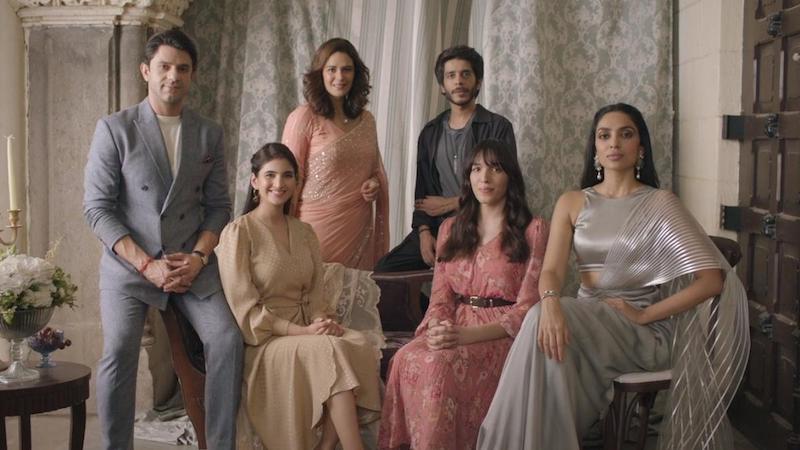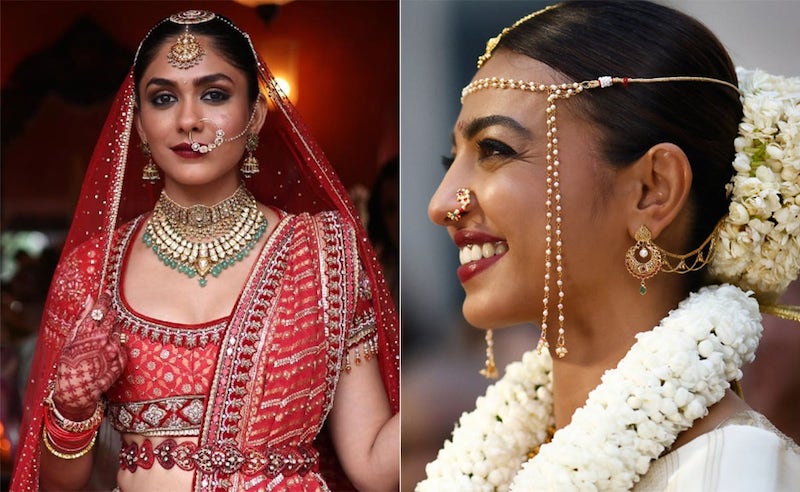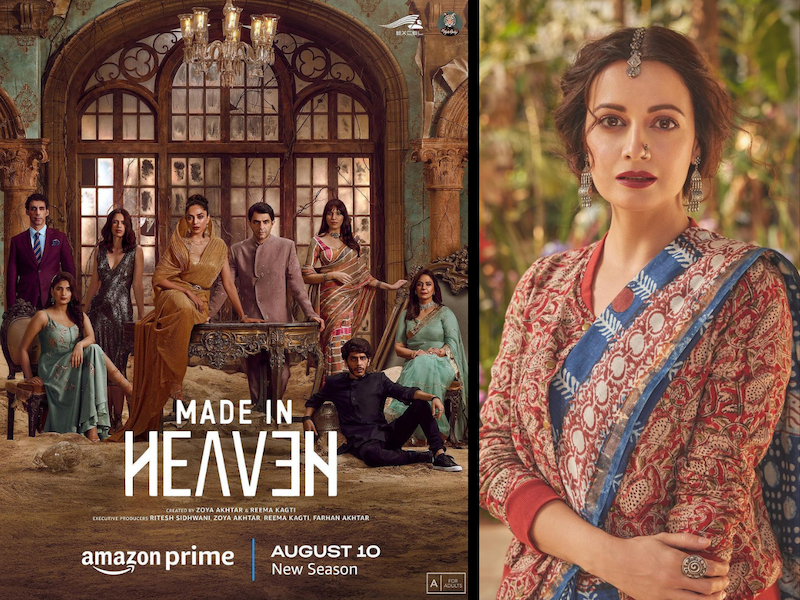 Made in Heaven walks a very fine line: On one hand, it takes its South Asian identity very seriously, displaying all the colours and beauty of old traditions. On the other, it speaks of the ways in which some of those traditions are evolving, and it does so glamorously, if not always beautifully.
Made in Heaven walks a very fine line: On one hand, it takes its South Asian identity very seriously, displaying all the colours and beauty of old traditions. On the other, it speaks of the ways in which some of those traditions are evolving, and it does so glamorously, if not always beautifully.
Made in Heaven Season 2 sees the return of Tara Khanna (Sobhita Dhulipala) and Karan Mehra (Arjun Mathur) as the wedding planner duo, best friends and co-owners of a wedding-management company called Made in Heaven. Tara and Karan handle very rich clients in the heart of New Delhi, all the while managing their own chaotic, scandalous and somewhat colourful lives. Adil and Faiza (Jim Sarbh and Kalki Koechlin) return, pregnant and ready for a second round of marriage while the season introduces the delightful Bulbul jee (Mona Singh).
Directors Zoya Akhtar and Reema Kagti tap into South Asia’s biggest obsession – marriage and weddings – and offer a new subject, or several, per episode – to ponder over. Some work, some fail hopelessly.

Domestic violence, South Asia’s obsession with skin whitening, the caste system and homophobia are some of the issues the series tackles.
Without giving away spoilers, the show picks up pace after a shaky start and some mediocre acting performances that are far from desirable. However, as the show enters its third episode, compelling storytelling is on display. The characters are likable and relatable but you also hate them sometimes, for their own self-destructive tendencies. Most importantly, the narrative is believable. Even though Zoya Akhtar has chosen to take up societal issues that are considered taboo in Indian society, and give them some representation on Indian TV, she picks and chooses which taboo gets a fairy-tale ending (in her show) and which end in tragedy.
The most controversial perhaps is the fifth episode, titled The Heart Skipped a Beat, which addresses the Shariah compliant practice of polygamy in Islamic law. The first wife Shehnaz (Dia Mirza) attempts suicide the night her husband Wasim takes a ‘gold-digging’ second wife, an air-hostess. The tropes neither begin nor end there, as Muslims are once again portrayed as archaic and redundant, from patriarchal, almost barbaric men and women who need saving as they gracefully shift the dupattas on their heads.
At a time when Islamophobia is on a rise (in India) this story seems careless and counterproductive. That it is juxtaposed, in the same episode, with a gay wedding – throwing light on progressive the rest of India is – isn’t lost on us.

Diya Mirza’s character says: ‘I am not just a Muslim but also a citizen of this country.’
Beyond the obvious issues, MIH attempts to challenge old norms and tries to establish what the modern South Asian bride looks and talks like. For instance, when a Buddhist Dalit wedding brings up deeply-rooted caste divides, the bride (played by Radhika Aapte), a progressive author and activist, insists on having a Dalit ceremony, which offends many family members, including her own brother. “Everything is politics,” says an exasperated Radhika, which is the language of the millennial-gen Z South Asian, who is more socially and politically motivated than ever before.
In fact, Made in Heaven also does this by using relationships between parents and children, to show the growing divide between the old and the new.
Thankfully, it’s not just politics on display, but also fashion, which makes this a serious but also glamourous watch. And why not? A show about Indian weddings is incomplete without the intricate lehengas and glittering handwork. This season, Made in Heaven takes helps from some of the biggest Indian fashion designers, such as Sabyasachi, Tarun Tahiliani, Amit Aggarwal, and Manish Malhotra, to make their characters and stars an absolute treat to watch. Sobhita herself is somewhat of a spectacle, with her draped saris and figure-hugging satin dresses. “I dress for myself,” says an empowered Sobhita, and we couldn’t agree more.






I switched from another service because of the reliable uptime and robust security.
I’ve been using it for a month for exploring governance, and the seamless withdrawals stands out.